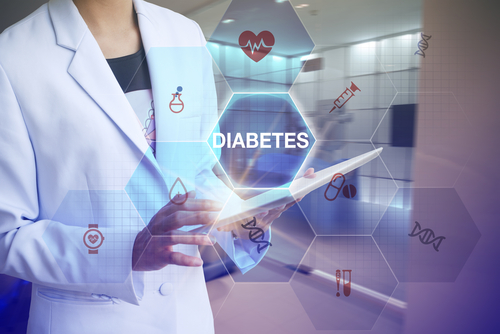



Get new exclusive access to healthcare business reports & breaking news




Diabetes is reaching epidemic proportions and digital health companies are fighting back with innovative solutions.The growing number of connected devices, tests and apps recently launched are not only changing the way doctors treat diabetes, but also pump millions of dollars into a once stagnant market
In 2017, total revenue for the digital diabetes market tripled to $98 million, according to a new report from Research2Guidance, an independent digital health market research firm.
Bundled sales of digitally-connected diabetes products and service are predicted to take off even more in the next years; up to $742 million by 2022.
One in 11 adults has diabetes or 425 million people worldwide, according to the International Diabetes Federation.
For these people, treatment used to be limited to oral medication or stand-alone devices such as blood glucose monitors or insulin pens and pumps. A couple of years ago, healthcare giants started tapping into the power of technology and moved on to developing smartphone apps. Azumio’s Glucose Buddy and Blood Sugar Tracker or Sanofi’s GoMeals and iBGStar were among the most popular. For the first time, patients were able to track their blood glucose, food intake and physical activity with the touch of a button.
The success of these apps and gadgets led digital health companies to push the envelope even further. Major industry players tweaked their business models to better address the complexities of diabetes.
Nowadays, instead of focusing solely on one app or one device, these companies are reviving the market through bundles, digital coaching services, and technology licensing.
In 2017, over 40% of the market’s value was generated by bundled offers.
For patients, bundles represent an affordable, time-saving alternative to traditional diabetes management tools.
One product offered by mySugr, for instance, costs $39.99 a month. It includes a starter kit with a lancing device, a blood glucose tracking app and unlimited test strips delivered to a patient’s door. The service doesn’t require health insurance or a prescription. Most importantly, mySugr gives customers access to a personal coach who would otherwise charge $65 per hour.
More health app developers are expected to follow suit and offer coaching services to their users.
“In 2016, only a handful companies offered coaching services for people with diabetes via their app channel. Today, around 5% of the total digital diabetes apps available have integrated some form of coaching for their users,” said Oleksiy Danilin, senior analyst at Research2Guidance.
The digital diabetes market’s new offerings perfectly compliment the emerging trends in direct primary care clinics.
Shifting from traditional health insurance to membership medicine, for a modest monthly fee, these clinics offer bundles of basic health services from Pap tests to skin biopsies, abscess drainage and, yes, diabetic management.
Another major source of revenue in the digital diabetes market? Device sales.
More and more biotech companies are teaming up with insurance companies to include their high-tech devices for diabetes management into healthcare plans
One example is Abbott Laboratories. Their FreeStyle Libre real-time continuous glucose monitoring (CGM) system is now covered by Medicare. Previously, Medicare also started covering Dexcom’s G5, another CGM system
Both are replacements for fingersticks. Instead, sensors attached to a patient’s body track glucose levels and send updates to a person’s phone every five minutes. Diabetics can get a full picture of their glucose levels at crucial points during the day, such as during exercise, while sleeping or before stressful events like an exam.
This is an excellent time for executives in healthcare to elevate their tech game and jump into this booming market. As Oleksiy Danilin puts it, “although the market has not yet reached a real breakthrough point, it has gained all the prerequisites of a mass consumer market and is now ready to take off.”
As more health insurance companies include these new offerings into their plans, the demand for digital diabetes care will continue to soar. Quality level will improve and prices will drop. Faced with so many options, patients will choose those health providers who best equip them with a variety of tools to self-manage their disease.